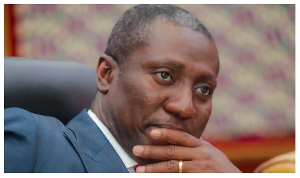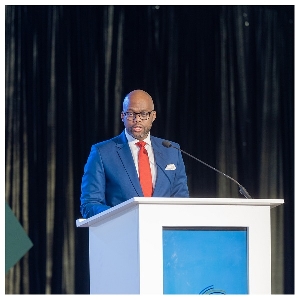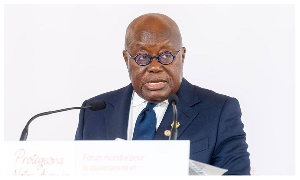Key measures to fast-track and promote seamless trading among the continent’s economies under the African Continental Free Trade Area (AfCFTA) are set to soon come into force, Secretary-General of AfCFTA’s secretariat Wamkele Mene has revealed.
These steps include establishing protocols of investment to protect investors (both foreign and local), intellectual property rights, protocols on women and youth in trade – which is critical for inclusion – as well as protocols on digital trade that are set to be concluded this month.
The protocol on digital trade, he explained, aims at positionng the continent to harness benefits from Africa’s digital economy to ensure inclusion – particularly of young Africans who are at the cutting-edge of digital innovation and require regulatory support for them to thrive in the African digital market.
The Secretary-General, who spoke at the Africa Prosperity Dialogues in Aburi, Eastern Region, also mentioned realisation of the AfCFTA e-Tariff Book – which will enable the private sector and economic operators across the continent to determine certainty of the tariffs applied to products they want to export, and also the rules of origin manual.
He described the e-Tariff Book as a pivotal resource providing easy access to tariff concession schedules and rules of origin. This tool simplifies complex trade regulations, making them more accessible to traders across the continent.
In addition, the Online Non-Tariff Trade Barriers notification mechanism represents a significant step forward. It offers a platform whereon traders can report and address trade obstacles, ensuring a smoother trade experience for businesses of all sizes – including those operating in informal sectors.
He added that some of these measures have been adopted while others are yet to be concluded.
The measures are in line with the vision of seeing the African continent as a single market trade-bloc and without the need for foreign currency.
“It is my strong belief that the outstanding negotiations on the rules of origin will be completed this year, paving the way for increased trading in AfCFTA-certified products across the entire continent. A noteworthy advancement in our quest to enhance intra-African trade is introduction of the AfCFTA hub and SMART AfCFTA, currently under development. These platforms aim to establish a trusted business directory, facilitating connections and collaborations among African businesses, streamline trade processes, enhance compliance and provide real-time data and insights.
“These efforts collectively represent a leap forward in our mission to create a seamless and prosperous trading environment across Africa. They underscore our commitment to leveraging technology and innovation in driving economic growth and integration,” he stated in the speech.
He also said it is crucial that the continent deepens the one-Africa market and prioritises products ‘made in Africa’.
This approach, he stressed, is not just about reducing dependence on imports from other countries; it is about actively engaging in producing and exporting goods that generate employment within Africa.
The Africa Prosperity Dialogues was themed ‘Delivering Prosperity in Africa: Produce, Add Value, Trade’.
Private sector
Mr. Wamkele Mene reiterated that the private sector is a key pillar in implementing AfCFTA, hence countries must channel efforts at strengthening its resilience.
He emphasised that: “It is not government that trades but the private sector. That is why we have developed a private sector strategy – identifying sectors such as agriculture, pharmaceuticals, transport and logistics, which combined create a market of US$130billion for investing in value chains.
“We recognise that many challenges remain; that’s why the partnerships we have developed with the Africa Business Council, African Development Bank (AFDB) and Afreximbank will ensure we mobilise the necessary resources to ensure that this dream becomes a reality.
“Indeed, let us use the AfCFTA as a development instrument; as its provisions extend beyond trade in goods and services to include investments, intellectual property, competition policy, digital trade and women and youth in trade. It also provides a dispute-settlement framework to deal with any disputes that may arise in the course of trading among member-states, particularly disputes arising from the instance or occurrence of unfair competition and dumping,” he concluded.
Click to view details



Business News of Saturday, 3 February 2024
Source: thebftonline.com
Measures to kick-start seamless trading under AfCFTA imminent
Opinions
















